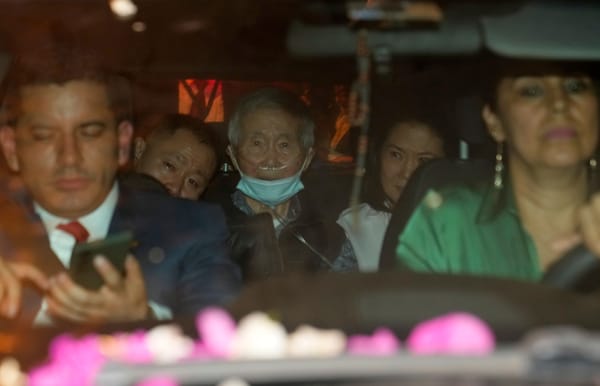On Dec. 5, Peru’s Tribunal Constitucional, or Supreme Court, delivered an early Christmas present to the Fujimori family, releasing from prison the former dictator Alberto Fujimori, who founded the political dynasty. A divisive figure in Peruvian politics, the older Fujimori is credited with defeating the brutal Shining Path insurgency and stabilizing the country’s economy after years of inflationary chaos. Along the way, he also oversaw some of the worst corruption and human-rights abuses in Peruvian history, among them the series of massacres by government death squads that ultimately put him behind bars.
Fujimori’s release marks an inflection point in Peru’s tumultuous recent history. Over the past six years, the Andean nation has suffered through mass protests, six presidencies, two resignations, and seven impeachment attempts, two of which were successful. Fujimori’s daughter and political heir, Keiko, has played a key role in this prolonged political instability. Heralded not long ago for its prudent and, until recently, successful economic management, Peru’s permanent crisis represents yet another fall from grace in Latin America. How did it come to this?
The answer holds lessons for the broader region and the world. Economic malaise and anti-corruption initiatives often lay the groundwork for transformative political movements and their respective leaders. At the same time, whatever benefit either may bring in the short term, there are often unforeseen consequences in the long term, such as lawfare and the domination of a single figure over a nation’s politics.
